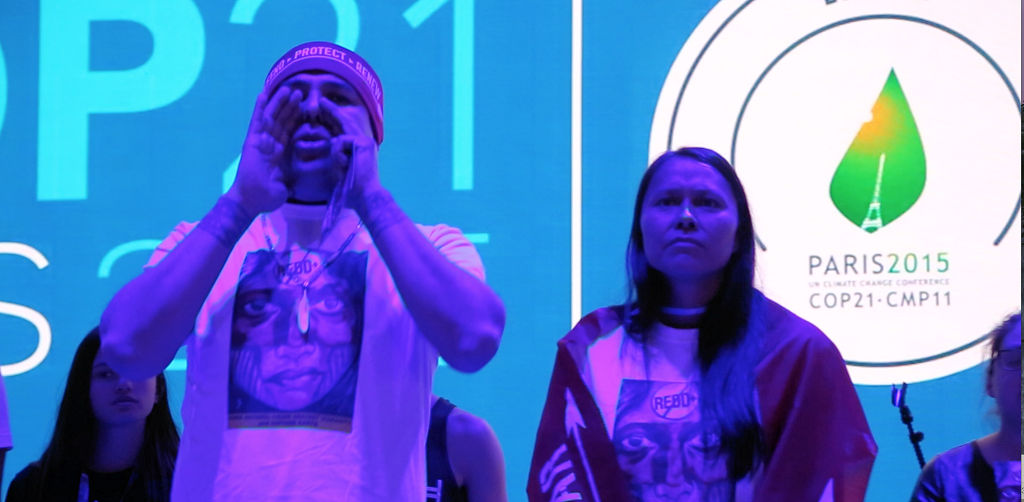Above Photo: From IndigenousRising.org.
Inside the COP21 Solutions Concert, The Indigenous Environmental Network staged an action in coordination with Xiuhtezcatl Tonatiuh, denouncing the false solutions being peddled by corporations in Paris during the COP21. Xiuhtezcatl, who received the Community Service Award from President Obama in 2013 and is the youngest of 24 national changemakers chosen to serve on the President’s youth council, was invited to perform with Earth Guardians at Solutions COP21.
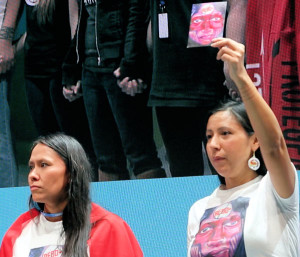 As a powerful voice of the youth-led climate movement, Xiuhtezcatl brought to the stage frontline representatives of the Global Grassroots Justice Alliance and the Indigenous Environmental Network’s Indigenous Rising delegation for the final song of his performance, who then made a statement against false solutions such as REDD and fracking. When the power went off to shut down the action, the activists took to using a “mic check.”
As a powerful voice of the youth-led climate movement, Xiuhtezcatl brought to the stage frontline representatives of the Global Grassroots Justice Alliance and the Indigenous Environmental Network’s Indigenous Rising delegation for the final song of his performance, who then made a statement against false solutions such as REDD and fracking. When the power went off to shut down the action, the activists took to using a “mic check.”
“I am standing in solidarity with the front lines communities affected by fossil fuel extraction, as an indigenous youth representing the generation most affected by climate change,” says Xiuhtezcatl. “ I strongly stand against false solutions such as fracking, carbon trading and REDD’s.”
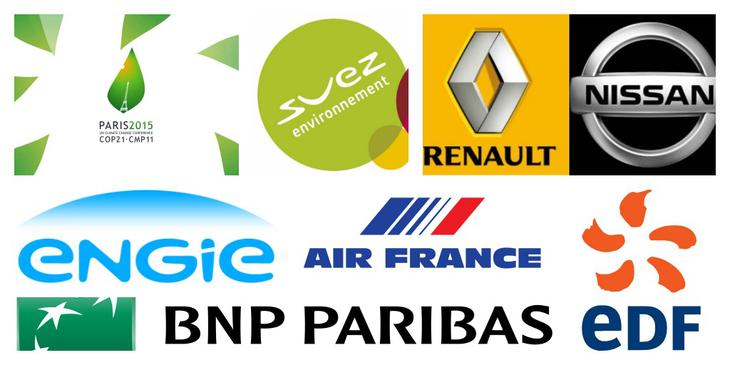
- COP21 Sponsors
According to the Earth Guardians group, the fossil fuel industry must be pulled out of the COP 21 talks in order for there to be real change, uninfluenced by the very companies and industries “that profit off of the destruction of our earth.”
Before being pulled off the stage with the lights being shut off, the participants of the action wore “No REDD” shirts and held up posters with No REDD.
“He awkwardly came on stage and tried to smooth over what just happened,” said Joey Montoya, one of the action participants regarding the event organizer. “A few seconds later, he gave the signal to the staff to turn the lights off. So then we started a mic-check saying ‘no false solutions.’ and ‘no REDD.’”
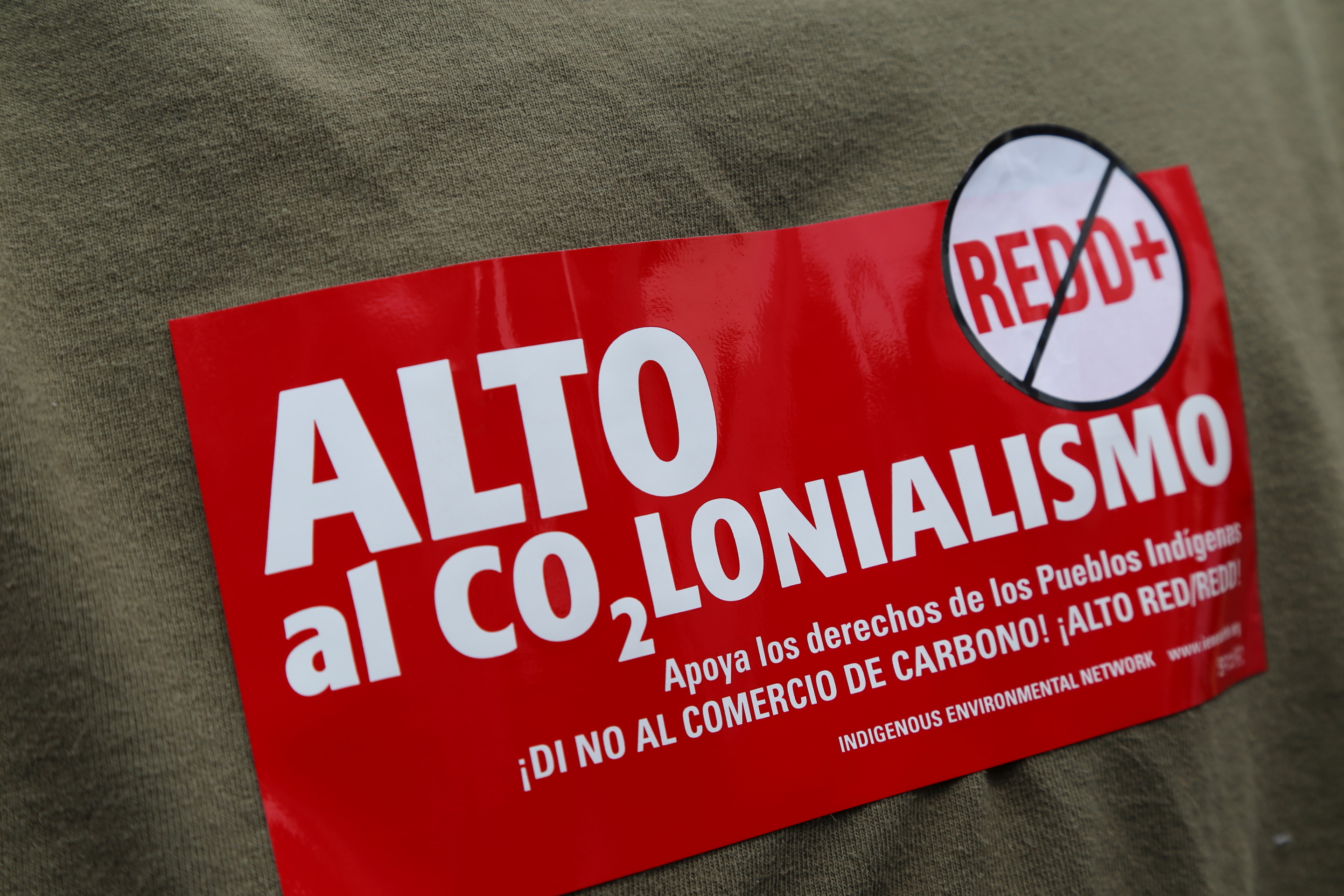 REDD (reducing emissions from deforestation and forest degradation) is a market-based carbon offset mechanism for emissions reductions, and is currently framed as a “solution” by the United Nations. As the UN REDD Framework Document predicted, REDD and forest carbon projects are already resulting in “loss of land”and threatening the cultural survival of Indigenous peoples.
REDD (reducing emissions from deforestation and forest degradation) is a market-based carbon offset mechanism for emissions reductions, and is currently framed as a “solution” by the United Nations. As the UN REDD Framework Document predicted, REDD and forest carbon projects are already resulting in “loss of land”and threatening the cultural survival of Indigenous peoples.
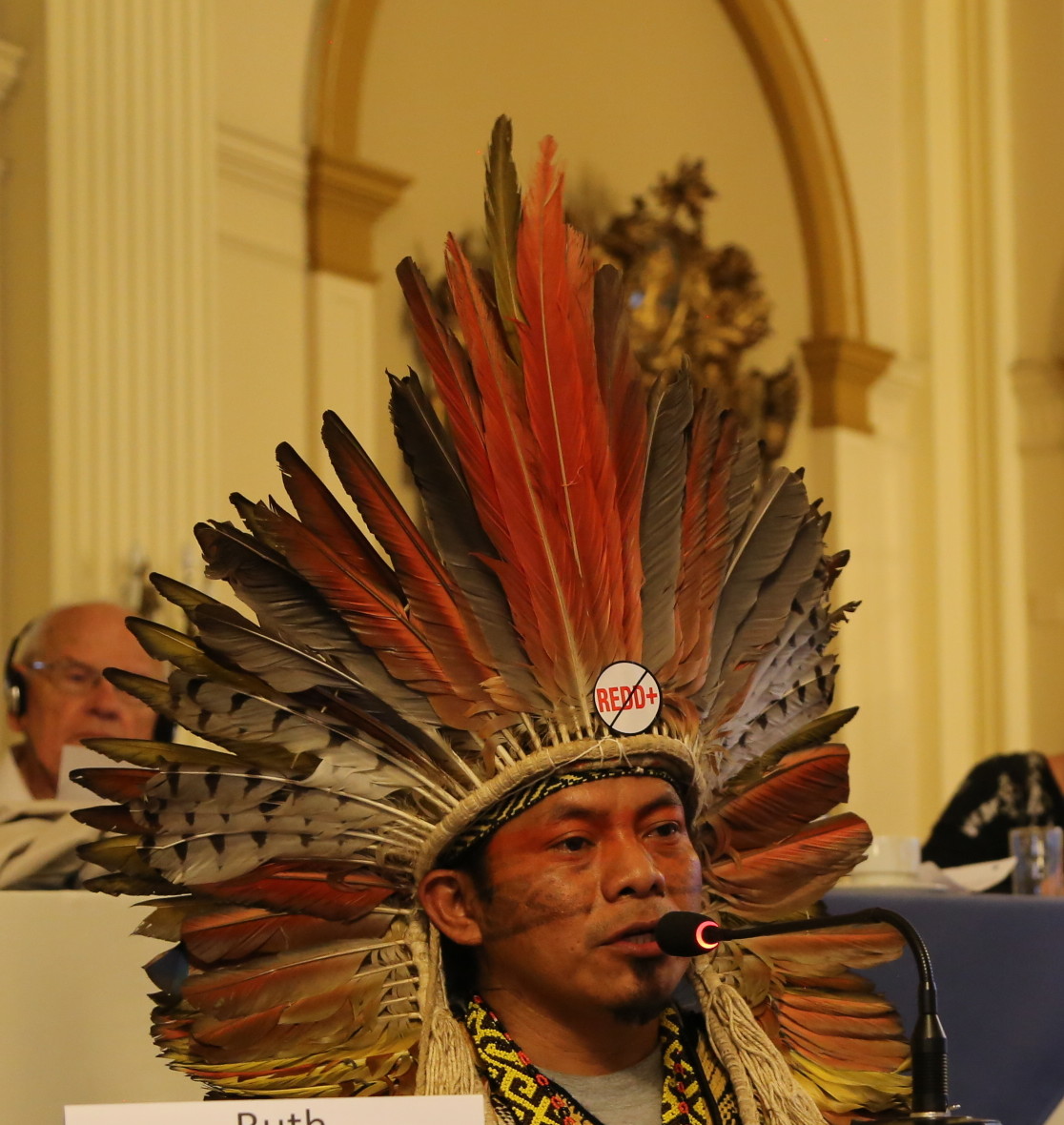
According to Ninawa Huni Kui, the president of the Federation of the Huni Kui people in Acre, Brazil in the Brazilian Amazon, the community he is from is no longer to fish in their own land, to cultivate food
, or to practice agriculture. All of these activities are banned and have been declared illegal, and people are jailed if they participate in agriculture or go fishing.
“Leaders are being criminalized for opposing the [REDD] project, and communities are told that the se
rvices provided for education or transportation or healthcare will be suspended if they oppose the project,” says Huni Kui. “There are many actors that are promoting REDD in Acre and that have given money to the state of Acre to do REDD. One of them is the state of California in the United States.”

While the United States is not yet engaged in REDD projects, it is poised to. California, is currently setting up the provisions to become the first state to do carbon trading on the global marketplae under REDD. Under these provisions, the State of California would use forests in Mesoamerica, the Amazon, and Africa as “sponges” for the carbon pollution of polluting industries such as Chevron and Shell.
For communities such as Richmond, California, this would further environmental justice issues for people living close to the Chevron refineries who have to endure more pollution in their communities, causing long-term health problems such as asthma, birth defects, cancer and depression.
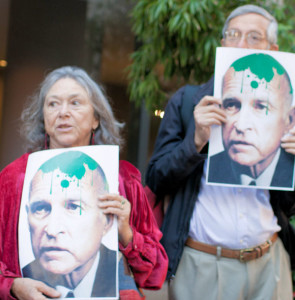 REDD would prolong these impacts by making offsets available to these polluting companies, allowing them to avoid reducing their emissions at source. For governor Jerry Brown, who is already critiqued for greenwashing with his endorsement of fracking, offsets will give California the appearance that it’s emissions are being reduced while emissions may in fact not be reduced domestically.
REDD would prolong these impacts by making offsets available to these polluting companies, allowing them to avoid reducing their emissions at source. For governor Jerry Brown, who is already critiqued for greenwashing with his endorsement of fracking, offsets will give California the appearance that it’s emissions are being reduced while emissions may in fact not be reduced domestically.

